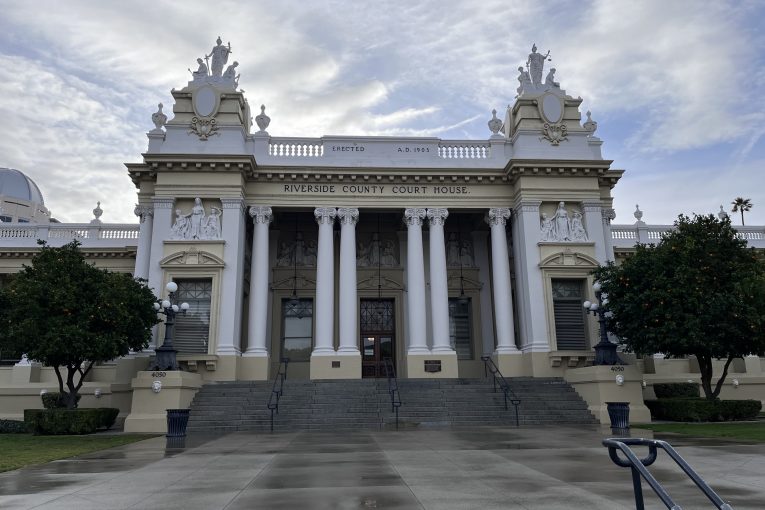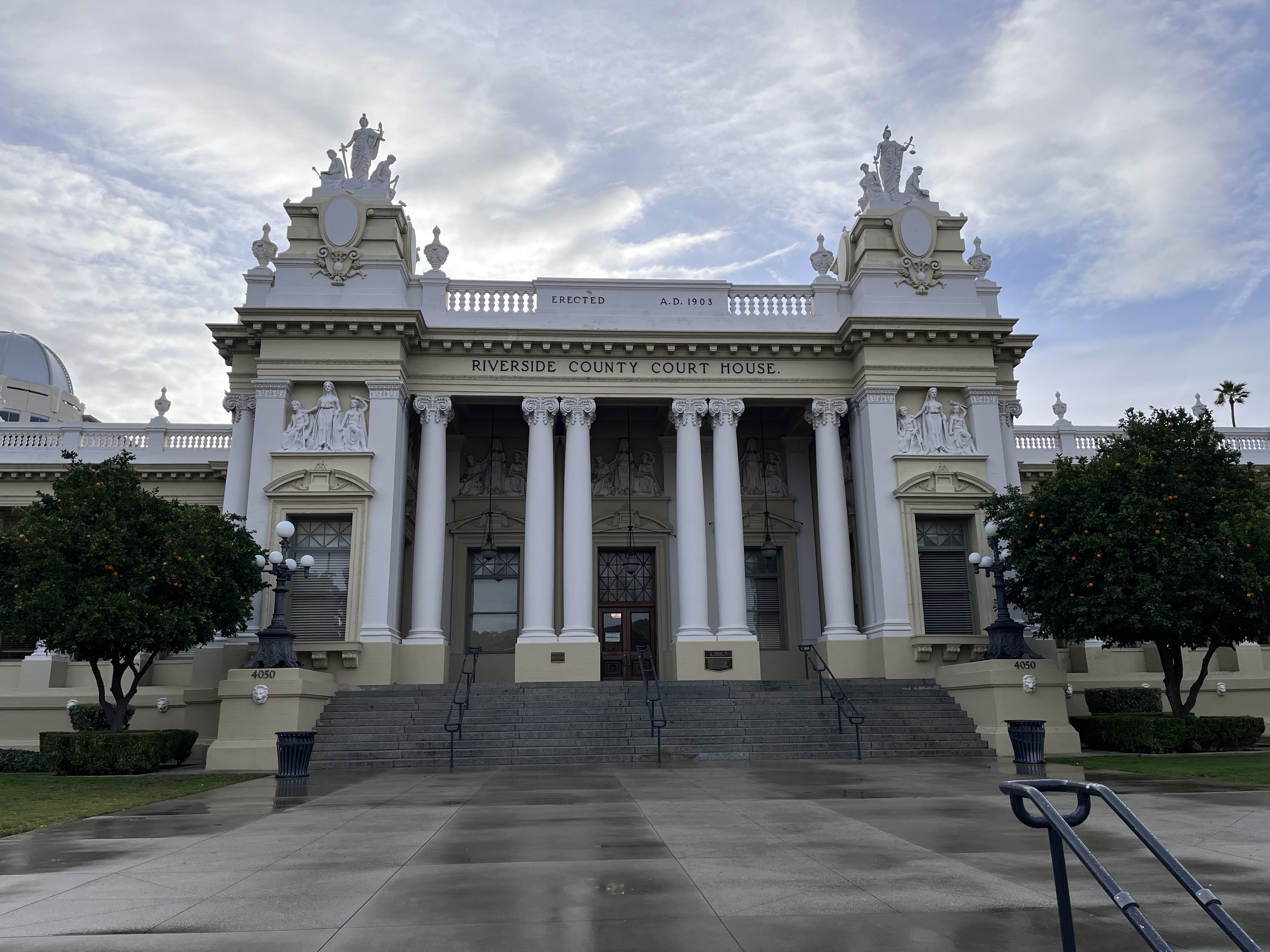

By David M. Greenwald
Executive Editor
Riverside, CA – In February, Riverside Superior Court Judge Bernard Schwartz rejected the defense and ACLU’s arguments that the Racial Justice Act and a history of disparate treatment of Riverside County seeking the death penalty for Black defendants, but not similarly situated white defendants, required an evidentiary hearing.
Last week, petitioners for two separate defendants—Russell Austin and Michael Mosby—filed an appeal with the Fourth Appellate District Court.
On February 24, 2023, the court argued there was a twofold analysis under PC section 745.
“One is statistical,” the judge explained. “The other is viewing persons who are in a similar situation, having committed similar conduct as to whether or not there’s a disparity in their treatment.”
He said, “Clearly, the first element, as I mentioned at our last hearing, I believe has  been met.”
been met.”
The judge said, he believes under PC § 745 “the defense has the burden to establish prima facie showing, which is defined as reducing facts that if true establish there is a substantial likelihood that a violation of subdivision a of the act has occurred … for purposes of this section of substantial likelihood requires more than a near possibility, but less than a standard of, more likely than not.”
Despite differences of opinion with the defense, the judge found that there was no other way to read PC 745 than a “two step analysis” where “the second element, which is clearly written within the statute, requires the showing that individuals who engaged in similar conduct are being treated in a different fashion.”
The defense believes, “Denial of the motion for a merits hearing on the CRJA was an abuse of discretion, contrary to the law, and a denial of petitioner’s due process and equal protection rights under the Fourteenth Amendment to the United States Constitution, the California Constitution and the controlling statutes.”
“In the process of deciding who winds up on death row in Riverside County, Black people are treated unequally at every step of the way from arrest all the way to death row when compared with white people,” stated Claudia Van Wyk from the ACLU Capital Punishment Project appearing over Zoom at the February hearing, who along with the Public Defender’s Office and ACLU of Southern California are representing the two men in this case.
Van Wyk told the Vanguard, “I think the problem is that the judge imposed what I call the almost impossible test requiring us basically to produce a mirror image clone who is white and didn’t face capital prosecution in order to establish our entitlement to a hearing.”
She added, “I don’t think that’s what the legislature intended. I think the legislature intended to provide a remedy for unequal treatment and wanted to do justice on the systemic level. And the almost impossible test really doesn’t carry into effect what the legislature intended.”
The judge, however, while agreeing the standard is not identical, nevertheless found the defense showing insufficient.
He explained that “the definition of similarly situated, is factors that are relevant in charging and sentencing that are similar and do not require that all individuals in the comparison group be identical.”
Judge Schwartz explained, “It appears sufficiently clear to me that the final language of the bill was intended to prevent the approach that was suggested by the defense, which is to simply permit relief based merely on population-wide charging disparities. Therefore, a statistical analysis by itself is not sufficient.”
In the case of Mosby, the judge noted that while “it is true that his convictions were not prior convictions, they were prior convictions to this particular case, and it is also true that Mr. Mosby does stand convicted of two prior murders and one attempted murder.”
In Austin’s case, he noted that while Austin has no prior record, “his facts of his case in this instance are significant,” noting that “the victim in the case was pregnant,” and was found “with her throat nearly torn out to the point of decapitation.”
Austin has denied involvement in the death of the girlfriend and the defense notes, “There is no murder weapon, no confession, and no witnesses to this incident other than a statement made” years later by a then three-year-old son of the victim. Austin was not arrested until February 2018.
Austin was 24 years old at the time of his alleged offense, he had no criminal history and no alleged acts of violence—charged or uncharged.
But Van Wyk believes that Judge Schwartz focused too much on similarly situated, and failed to give proper weight to the racial disparities in charging and sentencing in Riverside County.
She explained, “I think what’s important is that however you count and however you look at all the evidence we presented, black persons are more likely to be treated punitively than white persons at every step of the way in Riverside County, beginning with arrest and moving through the whole process to death sentencing.”
She continued, “And that’s not what the legislature wanted to see. The legislature intends to make sure that California courts embraced the goal of racial justice at all levels, including capital prosecution.”
Among the stats presented to the court was the fact that “more than 54% of the black defendants who had, um, were been charged with a death eligible case, got death notices from the prosecution, less than a quarter of the white defendants did.”
Another chart that they showed, “when you go from the beginning of the process to the end, the rep percentage of black defendants goes up, theercentage of white defendants go down.”
Van Wyk explained, “If the system was even handed, the percentages would stay roughly the same throughout, but instead it’s the black defendants who are increasingly treated punitively as a higher and higher percentage of black defendants progressed to the next stage and fewer and fewer white defendants progressed to the next stage as you look at each stage of the process.”
There is a strong disagreement on the law with respect to getting an evidentiary hearing.
“We disagree with him on the law. We think the legislature made it quite clear that you can prove your case using aggregate statistics and you don’t have to produce, um, what I call the mirror image clone case, somebody exactly like yourself who is of another race and escape pro capital prosecution,” Van Wyk explained.
They are now waiting to see what the Court of Appeal will do.
They filed a writ with California Court of Appeal that sits in Riverside asking them, to take the case and as the ultimate result, send it back to be decided “using what we consider to be the proper test, not the almost impossible test.”






